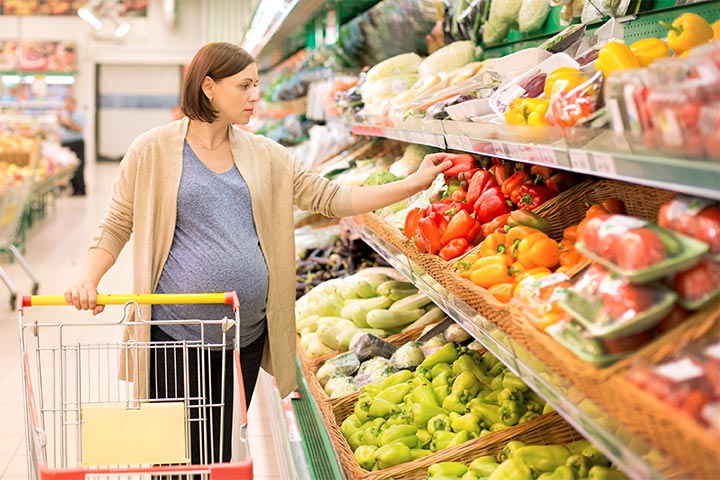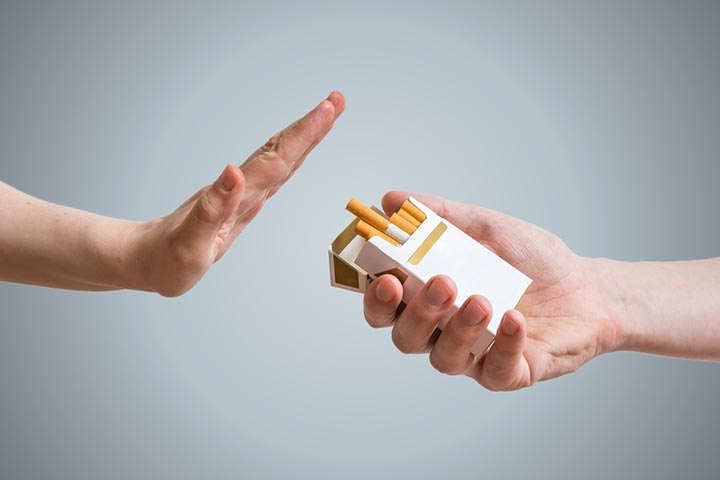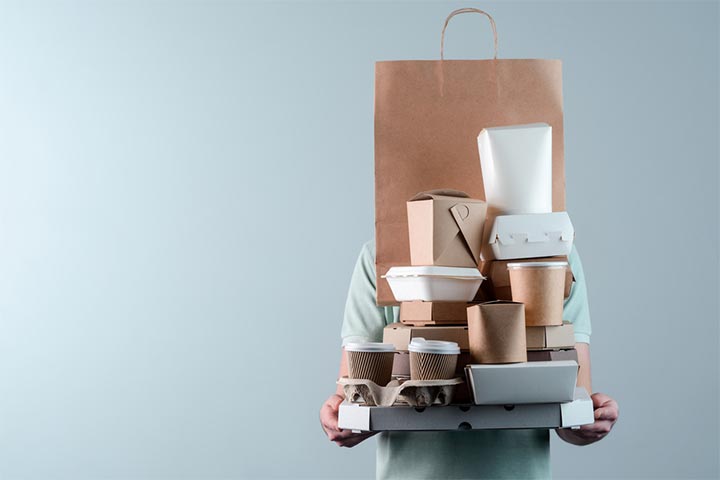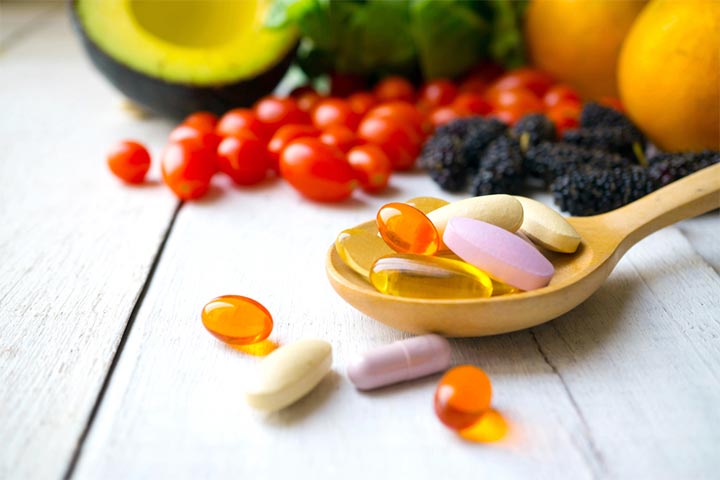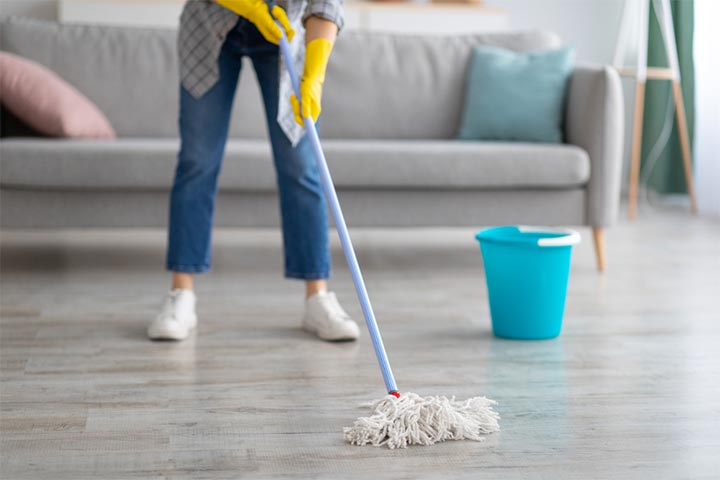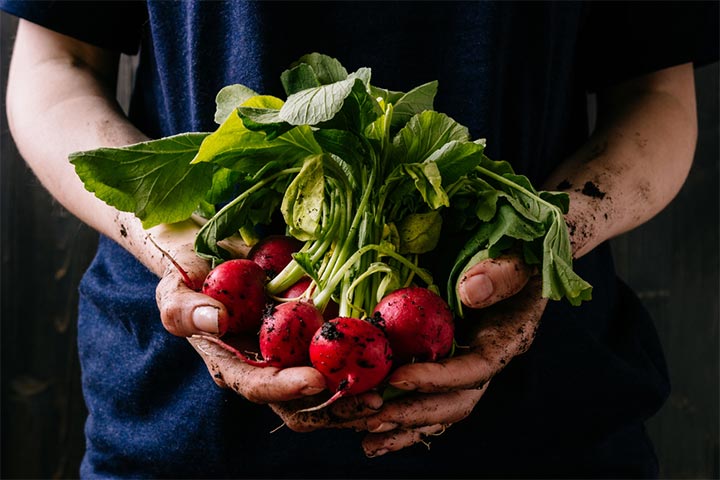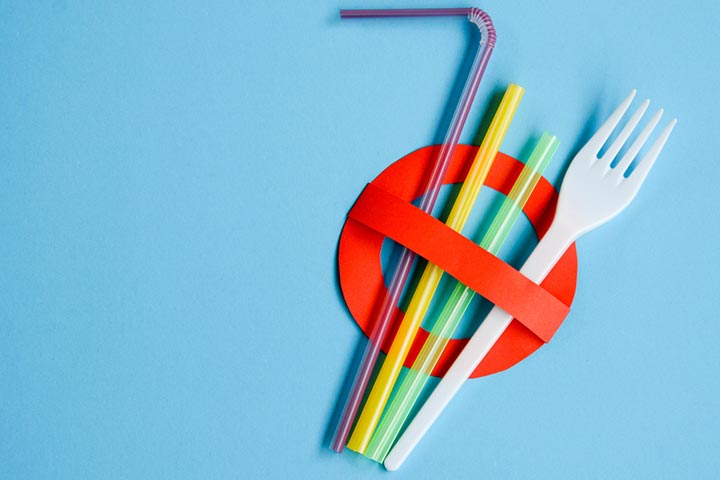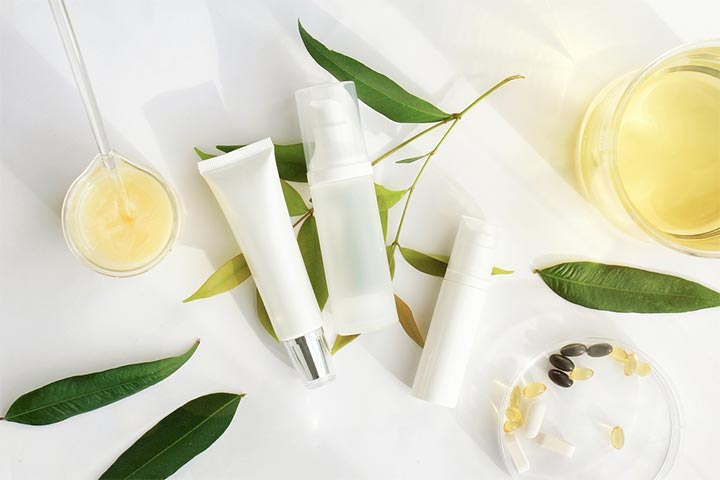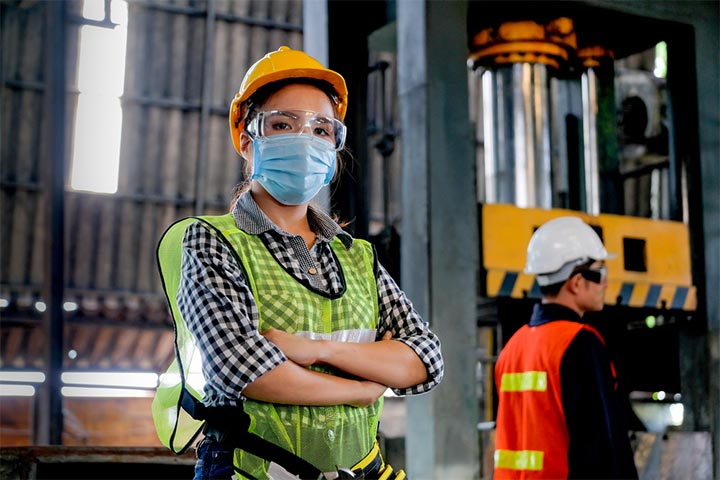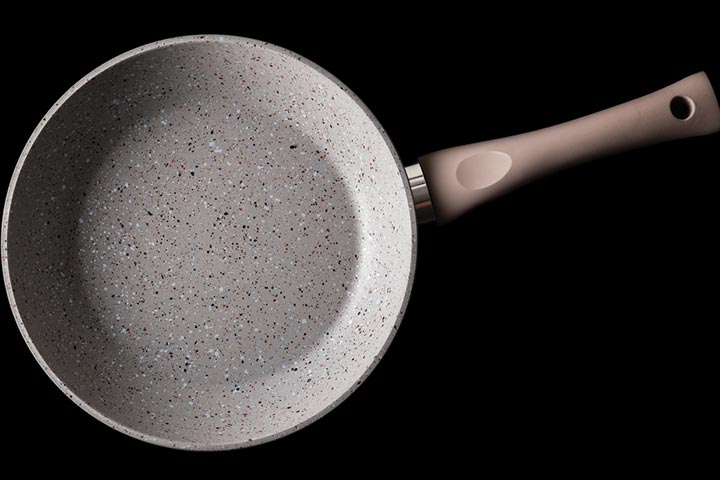
Image: iStock
Are you planning to go toxin-free during your pregnancy? If yes, you’ve made the best decision indeed! Ingesting toxic chemicals during pregnancy can be hazardous, not just for you but your unborn baby too. Chemicals enter your body through the air, water, physical contact, or even the foods you eat. As toxins pass from your blood to the placenta, they cause an accumulation of nasties in your body, posing significant risks to your fetus during pregnancy (1).
Look around, and you’ll notice how much we are inundated with toxins. These harmful chemicals are everywhere — from your food and utensils to your beauty products. There is no escape unless you decide consciously to live a minimalist lifestyle. Toxic chemicals can have lifelong consequences on the baby and you — they can impair your baby’s growth or cause congenital physical disabilities (2). So, you must take measures to reduce your exposure to toxic chemicals which find their way into your system, more often than not, without your knowledge. Wondering how? Read along to know more about leading a chemical-free lifestyle during your pregnancy:
How Can You Limit Your Exposure To Chemicals During Pregnancy?
Image: IStock
A total shift in your lifestyle may not be possible, but you can surely take some baby steps to limit your toxin intake. Here are a few practices you can adopt to avoid toxins in your lifestyle. You’ll thank us later! The following tips are not just helpful during pregnancy but also if you plan on getting pregnant:
• Give Up On Bad Habits
Image: Shutterstock
First and foremost, eliminate indulging in unhealthy practices. The simplest change you can incorporate into your lifestyle when pregnant is banishing the bad habits, namely, smoking and drinking alcohol. Exposure to nicotine and alcohol can cause complications like increased blood pressure and Sudden Infant Death Syndrome (SIDS) (3).
• Ditch Packaged Foods
Image: Shutterstock
Avoid processed, artificially colored, packed, or canned foods as much as you can, as these are loaded with chemical preservatives like nitrates and nitrites to improve their shelf life. Many fungicides and pesticides have been banned by food inspection agencies around the world (4). These may disrupt brain development in your newborn, interfere with your thyroid functioning, cause certain cancers, allergies, deter the body’s ability to deliver oxygen to the baby, and trigger Attention Deficit Hyperactivity Disorder (ADHD) (5), (6).
• Stay Consistent With Your Vitamins And Supplements
Image: Shutterstock
Although your immune system will experience changes during the whole term of your pregnancy and even later, you can make some necessary changes to boost it. Take your prenatal vitamins regularly and make sure your immunity is within the desirable levels. A strong immune system will help you fight away unwanted diseases (7).
• Limit Exposure To Toxic Fumes
Image: Shutterstock
Your wall paints contain Volatile Organic Compounds (VOCs) and your laminates too! Prenatal exposure to these dangerous chemical compounds through household cleaners can trigger fatal diseases in your little one. They can impact your indoor air quality and also cause severe respiratory issues in your newborn baby. Avoid buying chemical-loaded home-cleaning products like bleaches that contain high levels of VOCs. New furniture and mattresses can release killer fumes that make your breathing space toxic. If possible, you may reconsider remodeling your home or shift to toxin-free alternatives readily available in the market (8).
• Pick Organic Groceries From Your Local Store
Image: Shutterstock
It is best to know the source of your food and eat organic produce. As pesticides can linger in foods, wash your fruits and vegetables thoroughly and limit packed foods or eating out at restaurants. If going all organic is not possible, try avoiding foods sprayed with the highest levels of pesticides like rice, wheat, beans, legumes, oats, herbs like cilantro, kale, spinach, apples, potatoes, and cucumbers, among many others. Raw vegetables, eggs, fruit juices, and seafood may cause Listeria, which can cause bacterial infections in the placenta, leading to fetal problems (9). So, eat local foods or grow them in your own garden, and cook your meals well before eating them.
• Go Plastic-Free
Image: Shutterstock
Stop buying plastic products that contain industrial chemicals like Bisphenol A (BPA). BPAs may leach into the food and water and cause irreparable damage to your baby’s immune and nervous systems. BPAs are also found in straws, cutlery, the linings of metal food, and soda cans. Avoid microwaving your foods in plastic containers. It’s best to wash plastics by hand rather than putting them in a dishwasher. Alternatively, you can switch to glass and stainless steel from plastic. It’s best to avoid plastics with numbers 3, 6, and 7 (10).
• Shift To Chemical-Free Beauty Brands
Image: Shutterstock
You want to look flawless during pregnancy, and that’s great but consider the repercussions on your baby. This phase is particularly sensitive, so try searching for chemical-free alternatives. Check the labels of your beauty products before you buy them, and use minimal makeup products on your skin. Avoid sulfates, parabens, phthalates, synthetic colors, and artificial fragrances. It’s best to opt for ecologically sustainable, herbal, fragrance-free lotions, makeup, soaps, shampoos, sanitizers, and perfumes that are made as naturally as possible (11), (12).
• Manage Your Occupational Hazards
Image: Shutterstock
You must also be aware of workplace hazards when you plan on having a baby. Epoxies and resin exposure at your workplace can increase your chances of miscarriage, stillbirth, or delivery of a baby with congenital disabilities. If your job exposes you to toxic epoxies and resins, consider wearing respirators and personal protective equipment (PPE) to protect yourself from these harmful chemicals (13).
• Steer Clear Of PFCs
Image: Shutterstock
Perfluoroalkyl Chemicals (PFCs) are one of the worst offenders. PFCs are found in cardboard packaging, stain, water-repellent fabrics, and Teflon-coated non-stick pans. They may persist in the bodies of living organisms like fishes and poultry for a long time (14). This could lead to low birth weight in babies and destroy their immune system, making their body susceptible to diseases (15).
In today’s day and age, almost everything we consume is loaded with toxic chemicals — there’s little escape. You would be lucky to find healthy alternatives that are free from adulteration or contamination. Your baby’s health and wellbeing now will depend much on your lifestyle. Yes, we agree you have a lot on your plate at the moment. So, take it slow but stay determined to make some conscious shifts to your lifestyle choices — it’s the best for your baby and you. Did you make any lifestyle changes while you were pregnant? Do share with us in the comments section below!

